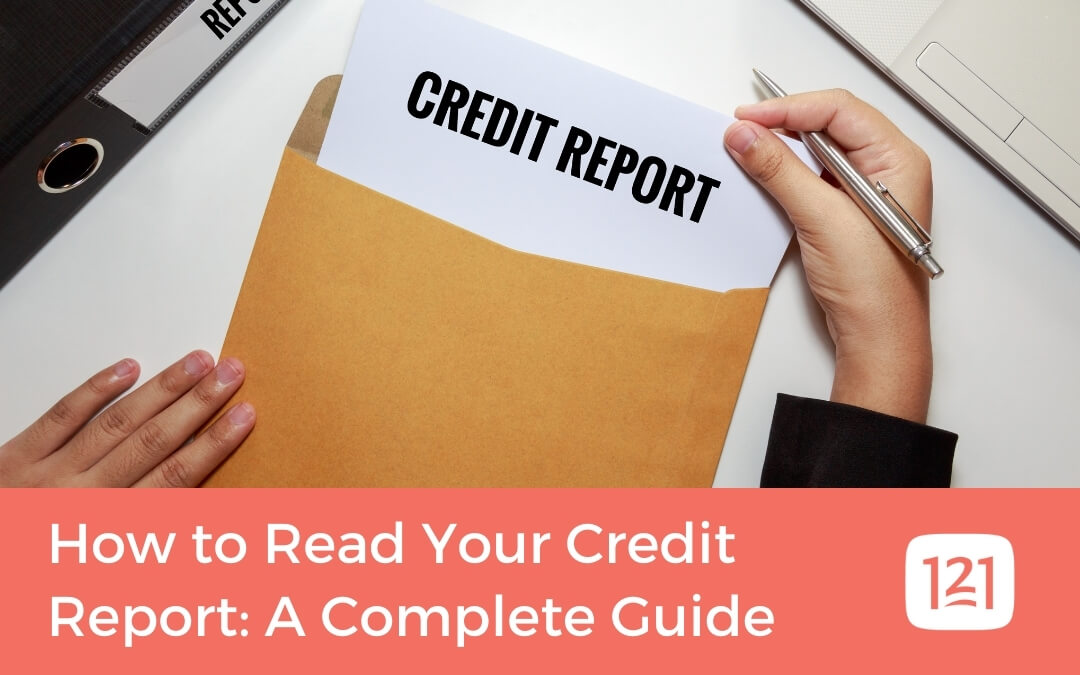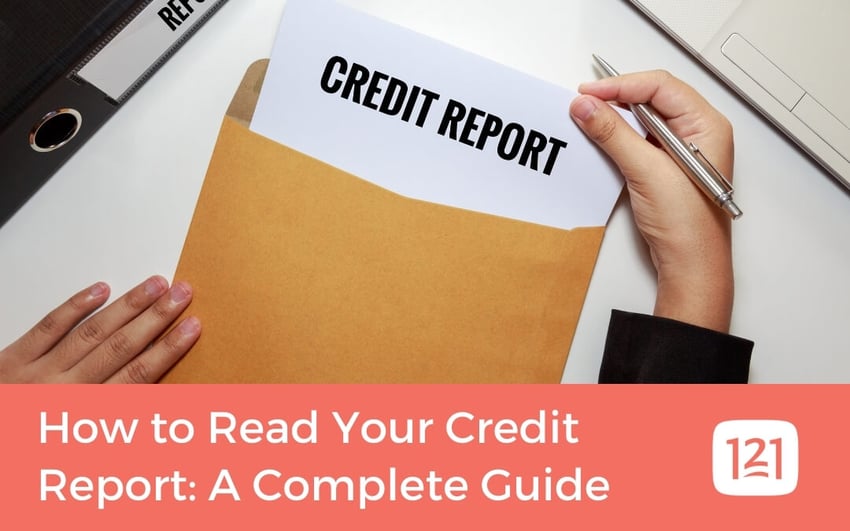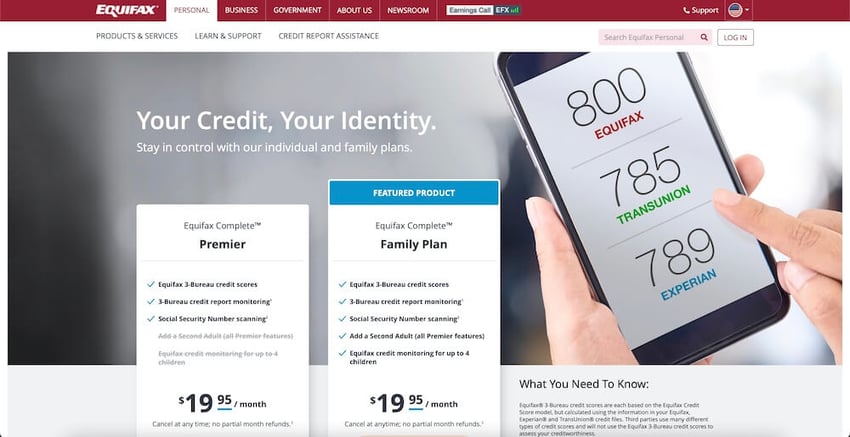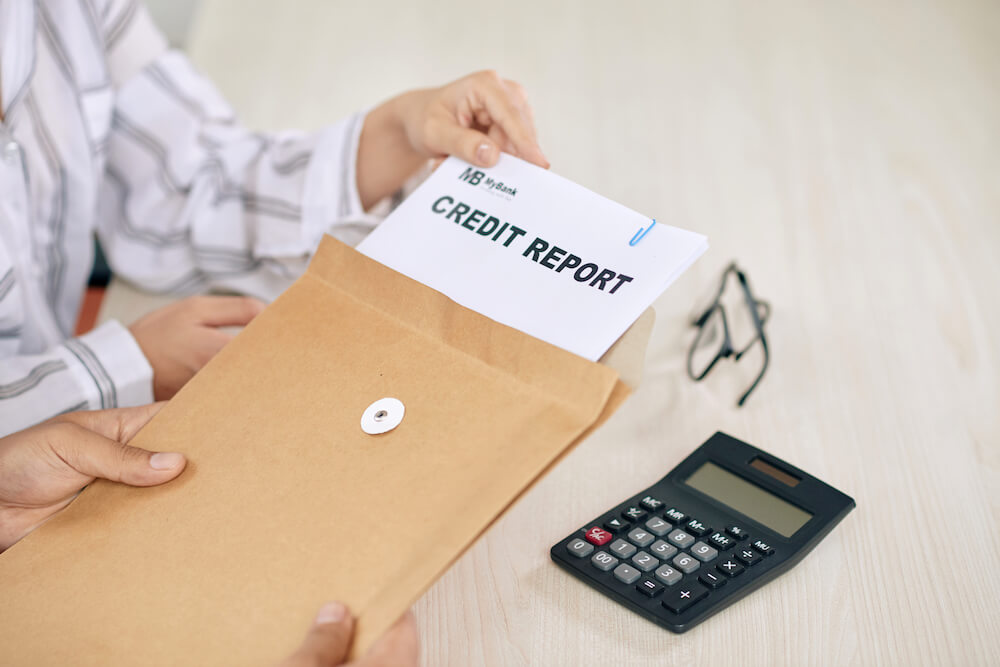
How to Read Your Credit Report: A Complete Guide

A key component of achieving financial security and financial freedom is understanding and getting a handle on your credit. As an indication of your estimated creditworthiness to lenders, your credit can help or hinder you in most of your financial endeavors, from buying a home or car to advancing your education to managing emergencies and preparing for retirement.
There are many practical steps you can take to repair and significantly improve your credit. The first step to doing so is understanding the current state of your credit, and in order to do that, you need to know how to read your credit report.
By learning how to read your credit report, you can discover how to identify and fix errors in your credit report and how to identify the areas where you can be empowered to make the most significant improvements to your credit standing with the least effort, for the lowest cost and in the shortest time.
Failing to learn these simple and empowering skills can leave you a helpless victim to all of your past financial mistake and poor credit choices.
The truth is, you always have the power to improve your credit report and your resulting creditworthiness to lenders.
Learn the following basic skills in reading, understanding and fixing your credit reports to take control of your financial face to the world.
How to Get Access to Your Credit Report
You actually have not just one but at least three credit reports, any one of which a potential lender or creditor may review to determine your creditworthiness.
While much of the information of each of these reports may be similar, there may also be different information contained in different reports.
It is, therefore, essential, in order to gain the fullest understanding and control of your credit status, to review all of your credit reports and make sure they each represent your credit status accurately.
The 3 Main Credit Reporting Agencies
There are three main agencies that produce credit reports, those being:
- Equifax
- Experian
- TransUnion

Nearly every American consumer has a credit report with each of these agencies that is linked to their Social Security number.
Each American is entitled to receive one free copy per year of each of his or her credit reports with each of the agencies.
To receive your free annual credit report from one or more of the credit bureaus, complete the online form at www.annualcreditreport.com. This is the only official source of free annual credit reports.
Do not be misled by other websites purporting to offer you a "free credit report" only to require you to pay for a credit monitoring service or pay for your credit score in order to access your report.
Note: You are not entitled to a free copy of your credit score from any agency and would, indeed, need to pay for that if you wanted it.
Any time you are denied credit, you are also permitted to review for free the credit report that creditor used to make that determination to deny you.
If you were denied credit due to an error on that report, then you are entitled to have the given credit reporting agency inform the given creditor of the error and to have that creditor reconsider your application for credit.
You can still review any of your credit reports from any credit reporting bureau at any time you like, but you may have to pay for it if you aren't otherwise eligible for a free copy at that time.
Some credit reporting agencies offer fee-based subscription services that include on-demand access to your current credit report with that agency, generally through an online portal.
What if I don't have a credit report?
In the rare instance that a person may not have yet established any credit history, such as by never opening a credit card or taking out a loan, that person may not have a credit report.
Such an individual would need to establish a bit of a credit history first in order to get a report with one or more of these agencies that he or she can then use to try and demonstrate creditworthiness, such as to take out a line of credit or a loan.
Parts of a Credit Report
While the information contained in your various credit reports isn't always identical, it does generally cover the same essential range of information.
Every report, no matter from which agency, is broken down into four basic parts.

Personal Information
This section includes your full name and any previous names you've used legally or for credit purposes. It also includes:
- Current and previous phone numbers and addresses
- Date of birth
- Social Security number
You may see many different spellings and versions of your name listed in this section, including maiden and married names, middle initials and middle names spelled out and shortened versions of your name or a common nickname you may have used on an application.
Don't worry too much if an employer is missing here or there, unless you find that employer a significant factor in your credit history.
Note: Do, however, keep an eye out for any names, addresses or phone numbers associated with you that you don't recognize.
Those you should investigate and, if applicable, have removed from your reports as soon as possible.
In addition, if you find any usages of your name or any phone numbers or addresses associated with your name that you don't recognize, report potential identity theft, as it could be evidence of such activity.
Credit History
Here you'll find listed all your credit accounts, both active and closed, detailing your track record of making timely payments as agreed.
If there were months when you were late with a payment or missed payments altogether, all those items will be noted here.
If you've defaulted on any accounts or they've gone into collection, those will not be listed here however.
With every item will be listed:
- Account type, be it a student loan, credit card, home mortgage, etc.
- The given creditor's name and address
- The associated account number and the date you opened the account
- The account's status, be it opened, closed or transferred, and whether your payments are all current
- Whether you hold the account individually or jointly with one or more other debtors or if you're simply an authorized user on another's account
- If an installment loan, the original amount, and, if a credit line, the highest credit utilized, credit limit and current balance
- Balance and payment information, including the last date the credit sent account data to the given reporting agency
Note: Actions you may have taken to improve your credit, such as making a payment, may not yet appear on your report when it's pulled for review, depending on the timing.
Potential errors to be aware of include payments noted as late that you actually made on time or an inaccurate credit utilization ratio.
If a closed account remains on your credit report, ensure that it was closed in good standing. Such items can remain on your credit report indefinitely.
If, however, a closed account is not in good standing, make sure that the date of closure was no longer than seven years ago, as this is the longest such items can generally remain on a credit report.
If you have a closed item in poor standing older than seven years remaining on one of your credit reports, contact the bureau in question to have the item removed.
Bureaus may divide your total credit history into smaller sections for easier reference, such as:
- Accounts in Good Standing
- Negative or Adverse Accounts
- Revolving Lines of Credit - With historical account information included, like balances, scheduled payment amounts, actual payment amounts and date of last payment
Public Records
This section contains any public records available regarding your finances, such as bankruptcies or property liens. Speeding tickets and other non-financial public records, however, are not listed here.
Most negative items on a credit report remain there for seven years, after which point you can request the bureaus remove the items if they don't remove them automatically.
Chapter 7 bankruptcies will last on your credit report for 10 years.
Credit Inquiries
This section records recent inquiries into your credit, generally covering the past two years. In other words, if you've had employers, landlords or potential lenders looking up your credit report in the covered time, a record of that inquiry and the source making it will be found there.
There are two basic kinds of credit inquiries that may appear on your credit report:
- Soft inquiry - These occur when you review your own credit report or give permission to a potential creditor so they can determine whether to make you an offer. Soft inquiries do not affect your credit score.
- Hard inquiry - These occur when a potential creditor reviews your credit report in order to determine whether or not to approve an application you've submitted for credit and, if so, under what terms. Hard inquiries do affect your credit score, but only for a short period. If any hard inquiry is still on one of your credit reports two years after it first appeared, contact the creditor at the name and address associated with the item to have them remove it.
Included with a listing of any credit inquiry will usually be an explanation of the permissible purpose for the inquiry, such as a credit transaction or tenant screening.
Because hard inquiries can temporary lower your score, it can be wise to submit all credit-related applications that may prompt a hard inquiry within a short period of time of one another.
That way, the collective impact of those inquiries on your credit score can remain minimal.
The Difference Between Your Credit Report and Your Credit Score
Remember, your credit score and your credit report are not the same thing.
- Your credit report is a literal, itemized account of your personal credit related data.
- Your credit score is a numerical estimation of your overall creditworthiness based on an algorithm derived from the data in your credit report.
Just like each credit bureau may have slightly different credit data listed in your report, each one also uses a slightly different algorithm to determine your credit score.
Therefore, your credit scores from different bureaus could differ considerably based on the combined divergences in both their datasets and credit scoring algorithm.
If you have concerns about your credit score being lower than you'd like, the way to improve it is to improve your credit and fix any errors on your credit reports.
To performs both of these actions, of course, you'll need to access, read and, above all, understand your credit report.
How to Fix Errors in Your Credit Report
If you find any items you don't recognize in one or more of your credit reports, investigate that item to gain clarity on what purchase or other consumer action of yours it relates to.
Perhaps you genuinely owed a payment and simply, honestly forgot. In that case, contacting the creditor and arranging to fulfill your obligation could clear that negative item right up.
On the other hand, perhaps you never actually made the purchase or took out the debt being assigned to you. Or perhaps you did, but you completed your debtor's obligation.
In either case, you can file a dispute with both the credit agency and creditor who reported the item in order to initiate an investigation and proceed to clear it up one way or another.
When you dispute a credit report error with a given credit bureau, that bureau has only 30 days to investigate your claim and provide an informed response.
Note: Due to the COVID-19 pandemic, the Consumer Financial Protection Bureau has extended that period to 45 days.
To submit a dispute, you may need to provide proof the listed item is in error, such as receipts proving repayment of a debt listed as still outstanding.
If you find an item on one of your credit reports that you determine to be downright fraudulent, you also have the right to file a complaint with the Federal Trade Commission (FTC) against the reporting claimant.
If a crime has been committed against you in this instance, you can also report it to the police.
Summary
By ensuring that you have the best and most accurate credit reports you possibly can, you empower yourself with the greatest range of consumer freedoms and opportunities, from the best deals, biggest rewards and lowest interest rates on credit cards and loans to greater access to education, career advancement, quality health care and greater quality of life.
If you live in or around Jacksonville and the northeast Florida area, speak with one of our representatives at 121 Financial Credit Union to discuss ways to repair, improve and maximize your credit.
